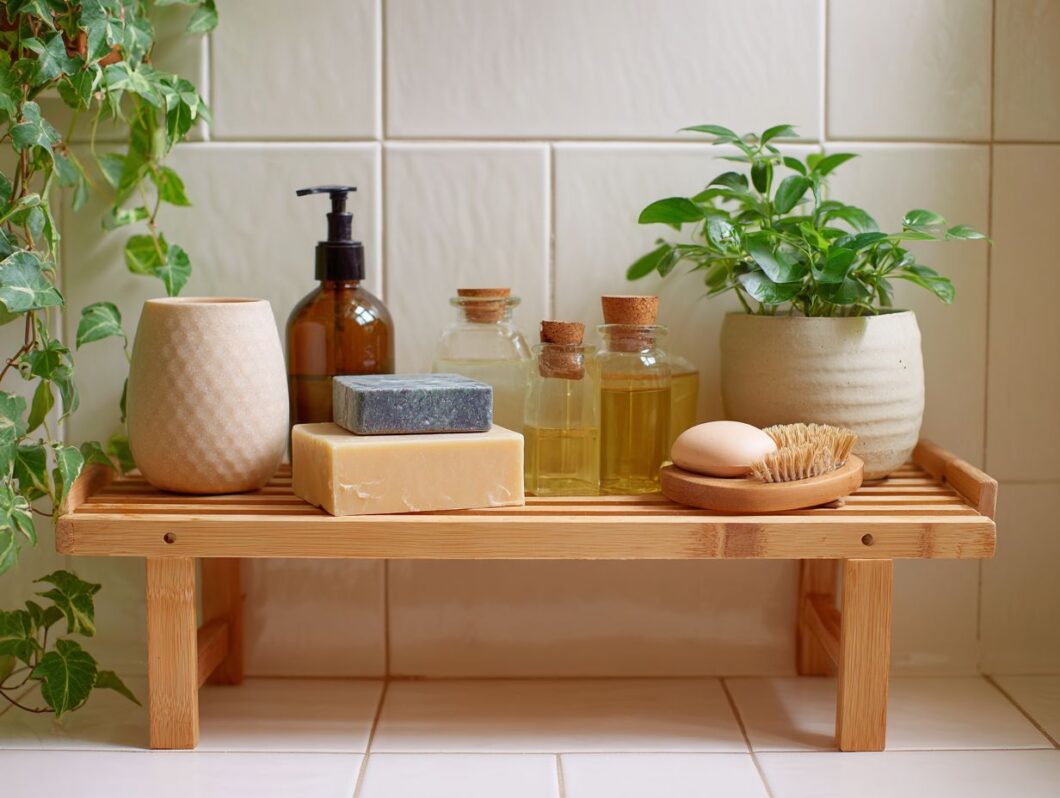In a world that is increasingly conscious of health and environmental concerns, I find the appeal of natural skincare and beauty products to be compelling. But what exactly qualifies a product as “natural”? In this article, I aim to unpack the different aspects of natural beauty and skincare products, examining the benefits they offer for both personal well-being and skincare benefits and the health of our planet. I will identify harmful ingredients often found in many conventional items and provide guidance on how to transition to a more natural lifestyle and skincare routine. Additionally, I will share skincare tips for selecting high-quality products that align with this approach. Furthermore, I will present DIY recipes that enable you to create your own natural solutions using essential oils and botanical extracts. Together, let us embark on this journey toward a healthier and more sustainable routine.
Key Takeaways:
Understanding Natural Products
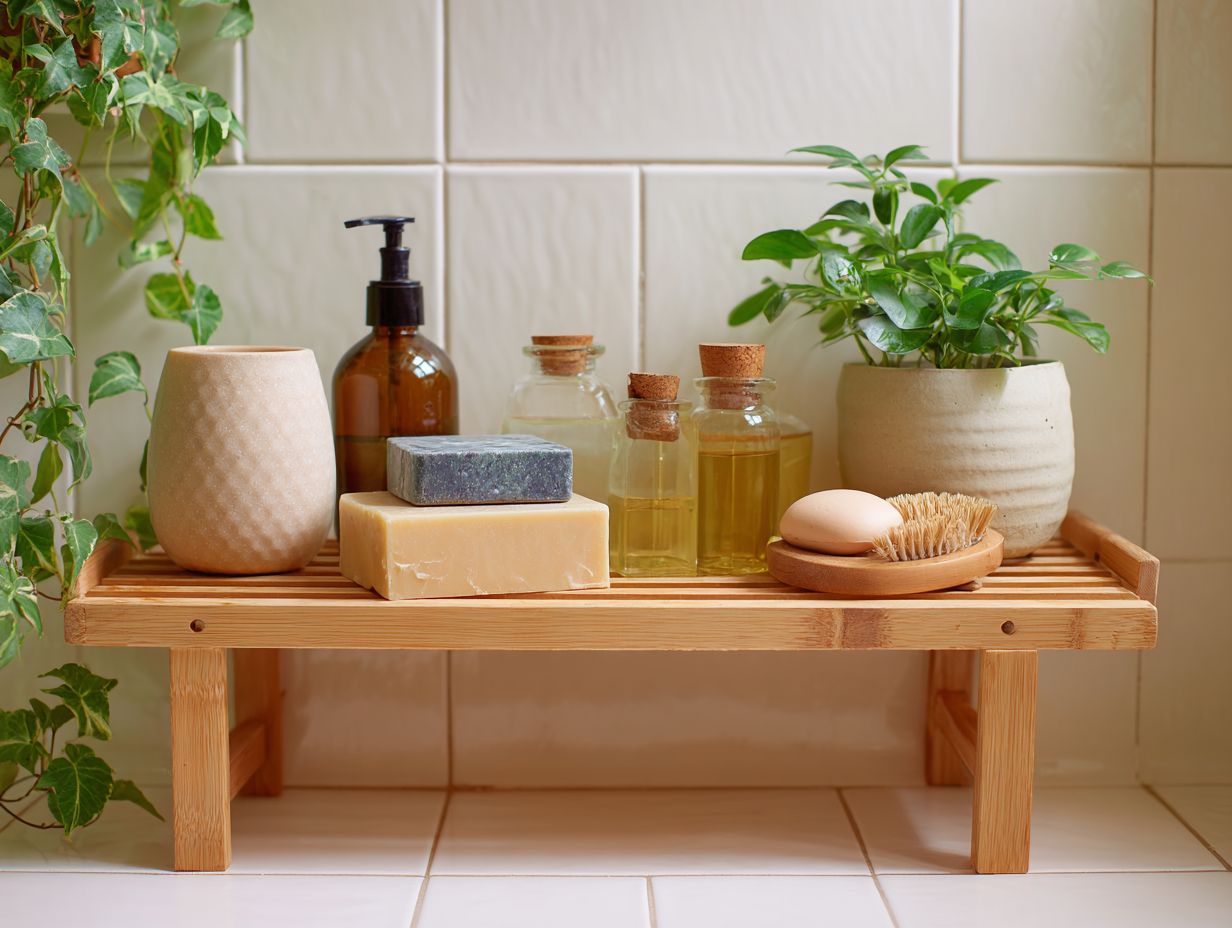
Understanding natural products is crucial for anyone looking to enhance their skincare routine with natural skincare with clean skincare options that promote skin health and align with sustainable practices.
This involves recognizing reputable natural skincare brands such as Tata Harper, True Botanicals, and Desert Essence, which prioritize plant-based ingredients and eco-friendly products while avoiding synthetic additives.
Additionally, by utilizing resources from the Environmental Working Group (EWG SkinDeep), I can gain valuable insights into ingredient lists that meet eco-friendly standards and embrace minimalism. For those interested in a comprehensive overview, this analysis by the EWG Skin Deep(r) Cosmetics Database covers the full spectrum of eco-friendly skincare options. This knowledge ensures that my product choices support both my personal care products and environmental sustainability.
What Makes a Product ‘Natural’?
I consider a product to be ‘natural’ when it is formulated with ingredients sourced from nature, such as organic ingredients, botanical extracts, and essential oils, while being free from synthetic components that could harm skin health or the environment. Many cruelty-free brands are increasingly focusing on these natural ingredients and beauty standards, addressing the needs of a skincare community that values both effectiveness and ethical practices.
Understanding the distinction between natural and synthetic products is essential, as natural options typically contain fewer chemicals, which can reduce the risk of irritation and allergic reactions, enhancing skin compatibility.
Ingredient transparency is critical; consumers now demand detailed information about the components in their skincare products, putting pressure on brands to disclose their formulations. This level of openness fosters trust and enables users to make informed decisions during their skincare journey. For context, Wikipedia provides an in-depth look at the rigorous process behind organic certification, highlighting the importance of transparency.
Additionally, cruelty-free certifications significantly enhance a brand’s appeal, signaling a commitment to ethical sourcing practices that resonate with conscious consumers interested in sustainable practices. As awareness of these issues increases, individuals are more likely to choose products that not only nourish their skin but also align with their values regarding animal welfare and environmental sustainability.
Benefits of Using Natural Products
Incorporating natural products into my skincare routine provides a range of benefits, including enhanced skin health, reduced irritation, and a lower environmental impact, all of which support a sustainable lifestyle.
Natural skincare products frequently contain nourishing ingredients such as botanical extracts, essential oils, and moisturizing creams, which tend to be more compatible with various skin types compared to conventional beauty products and makeup products.
These conventional options often include harmful synthetic ingredients, making oil cleansing and gentle cleanser important. making natural alternatives a more suitable choice for promoting overall skin compatibility and health.
Health and Environmental Advantages
I recognize that natural skincare products offer significant health and environmental benefits. These products, often crafted from plant-based ingredients, are less likely to cause skin irritations or adverse reactions, promoting long-term skin health.
Many of the brands I consider are cruelty-free and prioritize sustainable practices and transparency, which aligns well with my values as an environmentally conscious consumer.
By choosing natural skincare, I find that I experience fewer allergies and sensitivities, allowing me to adopt a more gentle approach to personal care, including hair care. The commitment of these brands to eco-friendly practices not only minimizes their carbon footprint but also promotes sustainable resource management and eco-friendly skincare, positively impacting the planet. According to research highlighted by National Geographic, the beauty industry is increasingly innovating with green science, which supports these sustainable initiatives.
As awareness of environmental issues continues to grow, I notice that consumers are increasingly inclined to support companies that demonstrate a commitment to protecting the environment. This collective shift toward mindful consumption encourages positive change within the skincare community, inspiring others to adopt greener habits that benefit both personal health and the world at large.
Identifying Harmful Ingredients
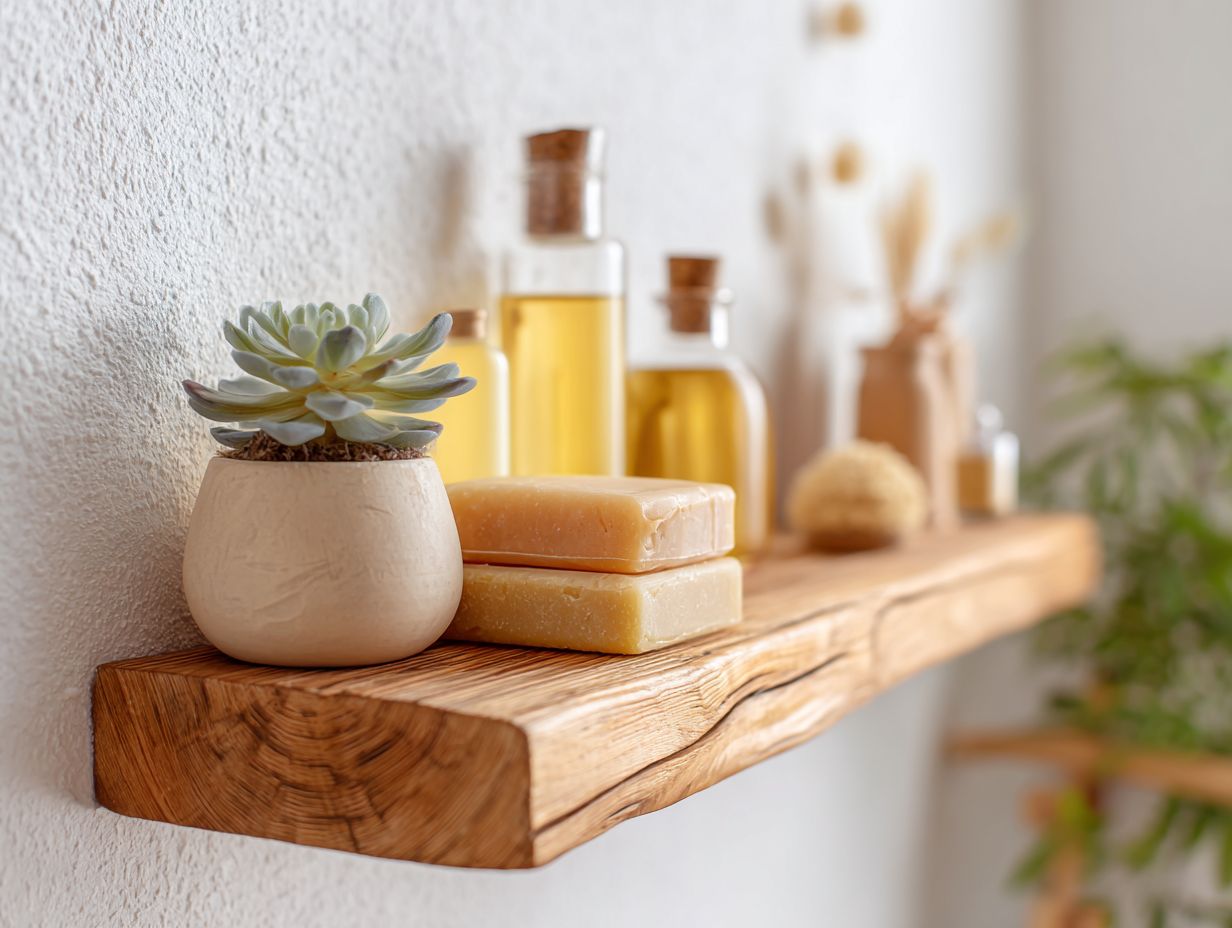
Identifying harmful ingredients in beauty products is essential for maintaining healthy skin and ensuring that my skincare routine aligns with my specific needs.
Conducting an ingredient audit allows me to recognize common harmful chemicals, such as parabens and sulfates. This knowledge give the power tos me to make informed choices about my personal care products and to replace them with safer, natural alternatives.
Common Chemicals to Avoid
I recognize that there are certain chemicals I should avoid in skincare, such as synthetic fragrances, parabens, and formaldehyde-releasing preservatives. These ingredients can lead to skin irritation and potentially long-term health issues.
As a member of the skincare community, I emphasize the importance of carefully reviewing ingredient lists to identify these harmful components and advocate for the use of natural alternatives that are gentler on the skin.
I also understand that ingredients like sodium lauryl sulfate and phthalates are found in many beauty products and can disrupt hormonal balance, leading to dryness and allergic reactions. It is crucial for me to be particularly mindful of how these chemicals interact with my specific skin type.
By embracing natural alternatives such as natural beauty options:
- Aloe vera for hydration,
- Coconut oil for its antibacterial properties,
- Jojoba oil for regulating skin moisture,
I can significantly enhance my overall skin health. Opting for products with minimal ingredients and those sourced from nature or organic ingredients not only reduces my exposure to harmful substances but often yields better results. It is a wise choice for anyone committed to their skincare journey.
Transitioning to Natural Products
Transitioning to natural products is a deliberate journey that necessitates careful evaluation of my current beauty routine and an understanding of which natural alternatives will best meet my skincare needs.
This process may involve gradually replacing synthetic products with natural options, using trial sizes to assess compatibility, and conducting comprehensive product research to ensure a successful transition in my skincare regimen without compromising on results.
Gradual vs. Immediate Changes
When transitioning to natural products, I recognize that I have the option to choose between a gradual or immediate change, each offering distinct advantages. A gradual transition allows my skin to adjust to new ingredients, which minimizes the risk of irritation. Alternatively, making an immediate switch may lead to quicker results in aligning my beauty products with my eco-friendly values.
I understand that many in the skincare community stress the importance of first identifying my unique skin type and sensitivities. For instance, if I have sensitive skin, I may prefer the gradual approach, introducing one product at a time to effectively monitor any reactions.
On the other hand, if I am dealing with specific skin issues, I might find an immediate change necessary to address my concerns promptly. I’ve seen that many users advocate for strategies like patch testing and keeping a skincare journal to track their progress.
Ultimately, the key is in finding suitable natural products that align with my individual skin needs. This awareness enables a smoother transition and fosters long-term satisfaction with my natural beauty routine.
Finding and Choosing Natural Products
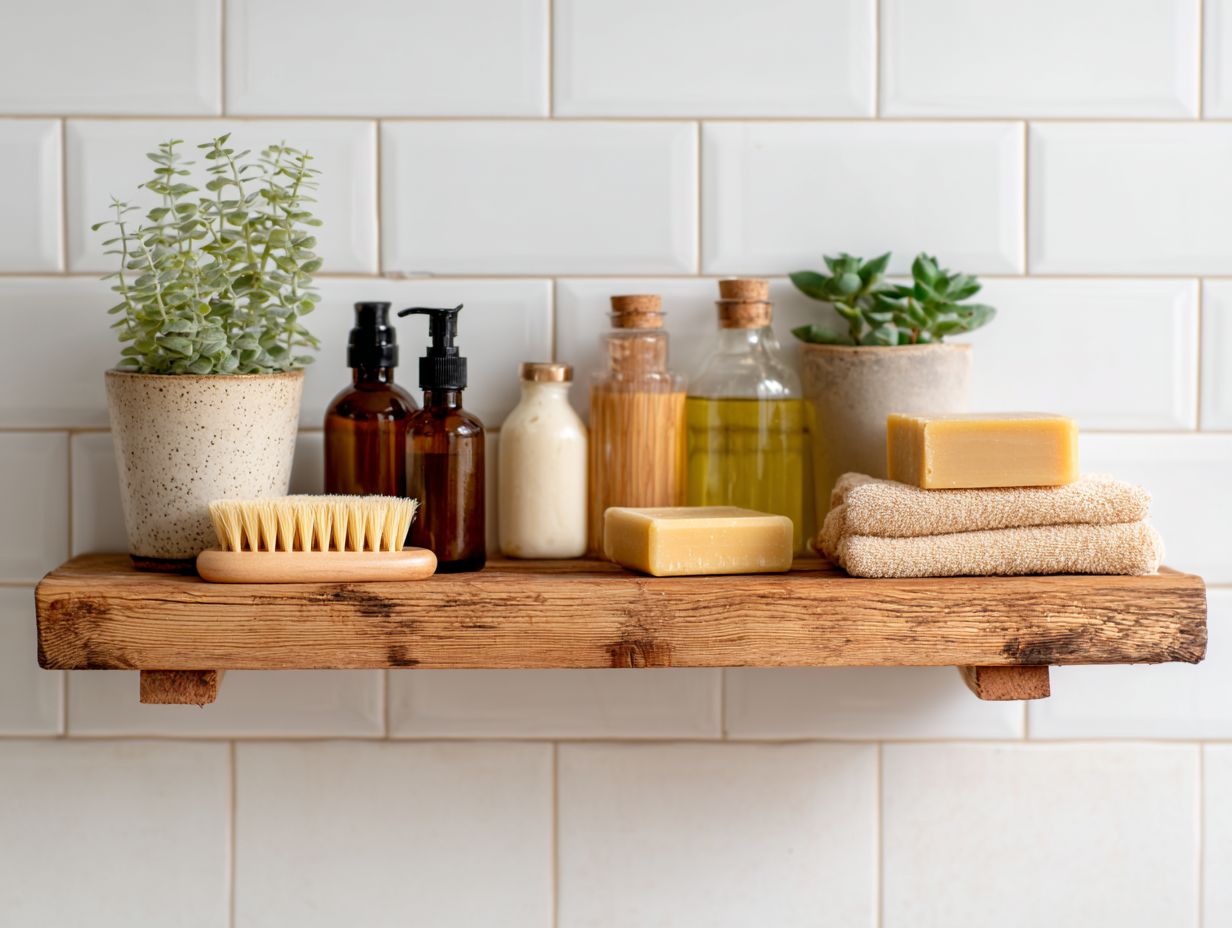
Finding and selecting high-quality natural products is a rewarding endeavor, especially when I can align them with my skincare needs and preferences for clean beauty.
By exploring various skincare brands, sampling different products, and leveraging beauty tips from the community, I can make informed choices that enhance my beauty routine and promote healthier skin.
Tips for Selecting Quality and Safe Products
When selecting quality and safe products, I prioritize thorough product research, ensuring to check for certifications from cruelty-free brands and eco-friendly options that promote sustainable practices. I rely on skincare tips from trusted sources to guide my decisions, helping me identify which beauty products are best suited for my skin type and individual needs.
Conducting ingredient audits is essential for me, as I want to ensure that the formulations I choose are free from harmful chemicals and irritants that could lead to adverse reactions. Engaging with community recommendations has also proven beneficial; I often find valuable insights from fellow users who share their experiences with various natural products, including brands like Tata Harper and Desert Essence.
I make it a point to read reviews on reputable platforms like Credo and Shop Good and follow brands that consistently demonstrate transparency and ethical sourcing practices, as this helps me make informed choices.
Understanding specific certifications-such as USDA Organic or Non-GMO Project Verified-further assists me in discerning which products meet high safety and quality standards.
Making Your Own Natural Personal Care Products
Creating my own natural products is an empowering and creative approach to ensure that my skincare routine is free from harmful chemicals and precisely tailored to my unique skincare essentials and preferences, inspired by experts like Jessica Morelli and Amy Scheider.
By utilizing DIY recipes that incorporate essential oils and botanical extracts, I can formulate effective homemade beauty products that promote skin health and align with my commitment to clean skincare.
DIY Face Masks and Skincare Process Tips
I find that DIY recipes for natural skincare products can vary from simple facial masks to more intricate moisturizing creams, utilizing ingredients that are both effective and safe for the skin. By incorporating essential oils, I can enhance the benefits of these homemade beauty products, allowing for customization based on my specific skincare needs, just like products from ILIA or Brooklyn-based brands.
Through experimentation with different combinations of natural ingredients, I am able to create unique formulations tailored to my skin type, whether it be oily, dry, or sensitive.
For example, I often use honey for its versatile antibacterial properties, while avocado oil provides deep hydration.
I ensure that I carefully select essential oils, making sure they are suitable for skin application and properly diluted to avoid any irritation. Customizing these recipes not only promotes creativity but also empowers me to take control of my skincare routine, turning beauty maintenance into a rewarding and enjoyable endeavor, much like using products from True Botanicals or Meow Meow Tweet.
Frequently Asked Questions
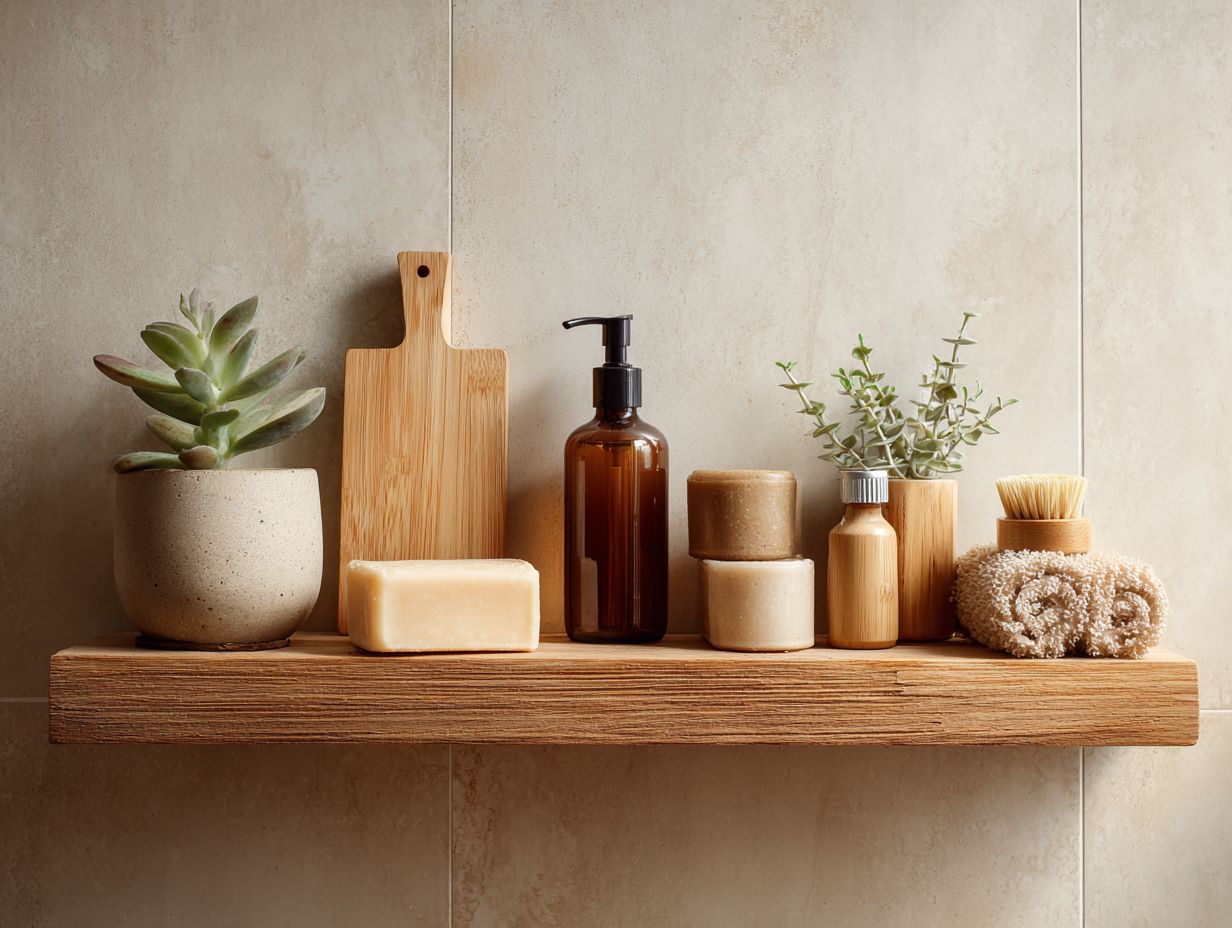
How can I transition my daily routine to fully natural products?
Transitioning your routine to fully natural products can be overwhelming, but it’s definitely worth it for your health and the environment. Start by gradually replacing one product at a time with a natural alternative, and aim to switch out one product every few weeks until your entire routine is natural.
What are the benefits of using fully natural products like Supergoop in my routine?
Fully natural products are free from harmful chemicals, synthetic ingredients, and toxins that can be found in conventional products. This can lead to improved skin and hair health, reduced risk of allergies and irritation, and a more sustainable lifestyle.
How do I know if a product is truly natural?
Look for products that are certified organic or have a high percentage of natural ingredients. Avoid products with long, unpronounceable ingredient lists or those that contain fragrances, dyes, or preservatives.
Do I need to throw away all of my current products in order to transition to natural products?
No, it’s not necessary to throw away all of your current products. Instead, finish using them up and then look for natural alternatives when it’s time to replenish. This will also help reduce waste and save money.
How can I make the transition to natural products more affordable?
Natural products can be more expensive than conventional products, but there are ways to make the transition more budget-friendly. Look for sales and discounts, buy in bulk, or make your own DIY versions of common products using natural ingredients.
Can I use natural products for all aspects of my routine, including makeup such as Kari Gran?
Yes, there are plenty of natural makeup options available on the market now. Look for products that are made with natural and organic ingredients and avoid those with synthetic dyes and fragrances. You can also make your own natural makeup at home using simple ingredients like cocoa powder and coconut oil.


